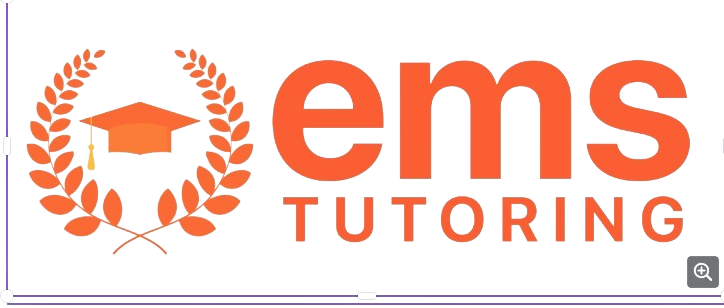Are you feeling overwhelmed by the thought of revising for your GCSE Maths exams? Don’t worry, we’ve got you covered! In this article, we have compiled a list of the top 10 revision tips that will help you ace your maths exams. From algebra to geometry, trigonometry to statistics, we will guide you through the best exam techniques and study strategies to ensure you are fully prepared. With our curriculum guide, practice questions, and maths resources, you’ll be able to tackle problem-solving and understand even the most complex mathematical concepts. So, say goodbye to exam anxiety and hello to tutoring success with these valuable revision tips. Let’s get started!
Top 10 Revision Tips for GCSE Maths
Preparing for your GCSE Maths exam can feel overwhelming, but with the right study strategies and exam techniques, you can approach it with confidence. This article provides you with ten comprehensive revision tips to help you succeed in your GCSE Maths exam.
1. Create a Study Schedule
To effectively prepare for your exam, it is important to set aside dedicated time for studying each day. By creating a study schedule, you can ensure that you have sufficient time to review all the necessary topics. Break your study sessions into smaller, focused blocks to maintain concentration and prevent burnout. Remember to include regular breaks in your schedule to recharge your mind and avoid fatigue.
When creating your study schedule, prioritize the topics that you find challenging. Allocate more time to these areas to give yourself ample opportunity to fully comprehend and practice the concepts. By focusing on your weak areas, you will be able to improve your understanding and performance in those specific topics.
2. Understand the Exam Format
Familiarizing yourself with the structure and style of the exam is crucial for effective preparation. Take the time to thoroughly understand the format of the GCSE Maths exam. Familiarize yourself with the different sections and the types of questions that may be asked. This will help you allocate your study time effectively and tailor your revision to meet the demands of the exam.
Another important aspect of understanding the exam format is learning the mark scheme. By familiarizing yourself with how exam answers are graded, you can gain valuable insight into what examiners are looking for. Practice past papers to get accustomed to the types of questions asked and become comfortable with the mark scheme’s expectations.
3. Identify Weak Areas
One of the most effective ways to improve your performance in GCSE Maths is to identify your weak areas. Analyze your performance in practice tests and assignments to pinpoint the topics and concepts that you struggle with. Keep track of these areas and make note of them in your study schedule.
Once you have identified your weak areas, seek extra help or resources to tackle them. Your teacher can provide clarification, and your classmates can collaborate in understanding challenging concepts. If needed, consider working with a tutor or attending revision classes to get additional support and guidance. Joining study groups is also a great way to benefit from collective knowledge and share different perspectives on difficult topics.
4. Practice Regularly
Regular practice is key to mastering GCSE Maths. Solve a variety of practice questions and problems to reinforce your understanding and develop problem-solving skills. Use online resources or textbooks for additional practice materials.
Review and correct your answers after each practice session to learn from your mistakes. This will help you identify areas where you need improvement and allow you to focus your revision accordingly. Additionally, challenge yourself by attempting more difficult questions to expand your knowledge and build confidence in tackling complex mathematical problems.
5. Seek Help When Needed
If you find yourself struggling to understand certain concepts or need clarification on a specific topic, don’t hesitate to ask for help. Your teacher and classmates are valuable resources and can provide additional explanations or examples to aid your understanding.
For more intensive support, consider working with a tutor or attending revision classes. Tutoring sessions can offer personalized instruction and guidance tailored to your individual needs. Revision classes offer a structured learning environment and provide the opportunity to review concepts with the guidance of experienced teachers. Additionally, joining study groups can create a supportive community where you can collaboratively learn from and help others.
6. Utilize Educational Technology
In today’s digital age, educational technology can be a powerful tool for enhancing your learning experience. Explore online learning platforms and educational apps that offer interactive lessons, quizzes, and tutorials. These resources can provide additional explanations and examples to reinforce your understanding of GCSE Maths concepts.
Online tutorials and interactive videos are particularly beneficial for visual learners, as they can help you grasp complex concepts through visual representations and real-life applications. Digital tools for solving equations or practicing graphs can also enhance your problem-solving skills and make your revision more interactive and engaging.
7. Develop Effective Exam Techniques
Preparing not only for the content of the GCSE Maths exam but also for the exam itself is crucial for success. Learn time management strategies to complete the exam within the allocated time. Practice working through questions efficiently and allocate appropriate time to each section based on its weightage.
Develop skills in reading and interpreting questions accurately. Pay close attention to keywords or phrases that indicate the desired mathematical operation or approach. By understanding the question’s requirements, you can avoid unnecessary mistakes or misunderstandings.
In addition to time management and question interpretation, focus on developing effective strategies for working out calculations efficiently. Learn shortcuts and techniques for mental math to save time during the exam. Practicing these techniques regularly will help you feel more confident and capable when confronted with complex calculations.
8. Be Mindful of Exam Anxiety
Exam anxiety is common among students, but there are ways to manage it effectively. Practice relaxation techniques such as deep breathing, meditation, or visualization to reduce anxiety. Prioritize self-care and ensure that you are looking after your physical and mental well-being during the exam period.
Utilize positive self-talk to build confidence and replace negative thoughts with constructive ones. Remind yourself of your past achievements and capabilities. Surround yourself with a support system of friends and family who can provide encouragement and reassurance.
9. Review Key Mathematical Concepts
To perform well in the GCSE Maths exam, it is essential to have a solid understanding of foundational concepts. Ensure that you have a grasp of the fundamental principles of algebra, geometry, trigonometry, statistics, and probability. Review the relevant formulas and equations to familiarize yourself with their applications.
In addition to understanding individual concepts, make connections between related topics to see the bigger picture. Mathematics is an interconnected subject, and recognizing these connections can deepen your understanding and help you solve problems more effectively.
10. Use Maths Resources
Take advantage of the abundance of online resources available for additional study materials. Browse websites that offer tutorials, practice questions, and explanations for various GCSE Maths topics. These resources can provide different approaches to problems and offer additional practice to reinforce your learning.
Revision guides and textbooks can also be valuable resources for comprehensive study materials. They often provide step-by-step explanations, practice questions, and worked examples to help you understand and apply mathematical concepts. Additionally, exploring websites and forums dedicated to GCSE Maths can provide opportunities for discussions, online communities, and further explanations.
By following these ten revision tips, you can approach your GCSE Maths exam with confidence and increase your chances of success. Remember to create a study schedule, understand the exam format, identify and tackle your weak areas, practice regularly, seek help when needed, utilize educational technology, develop effective exam techniques, manage exam anxiety, review key mathematical concepts, and utilize available maths resources. Good luck!








